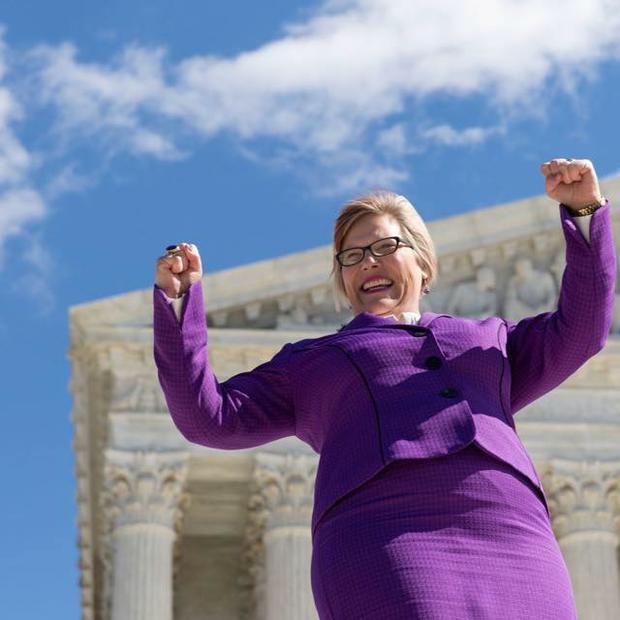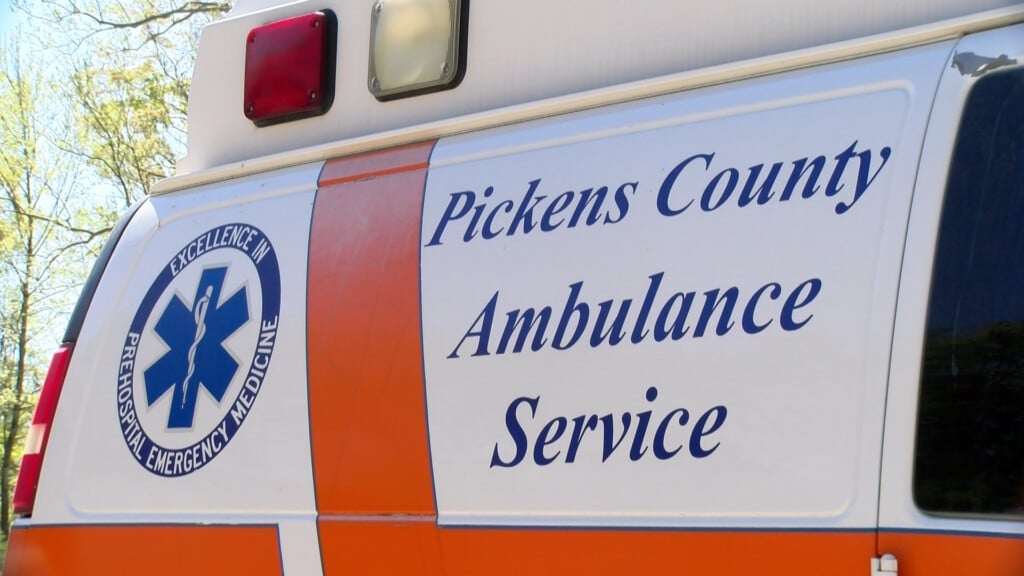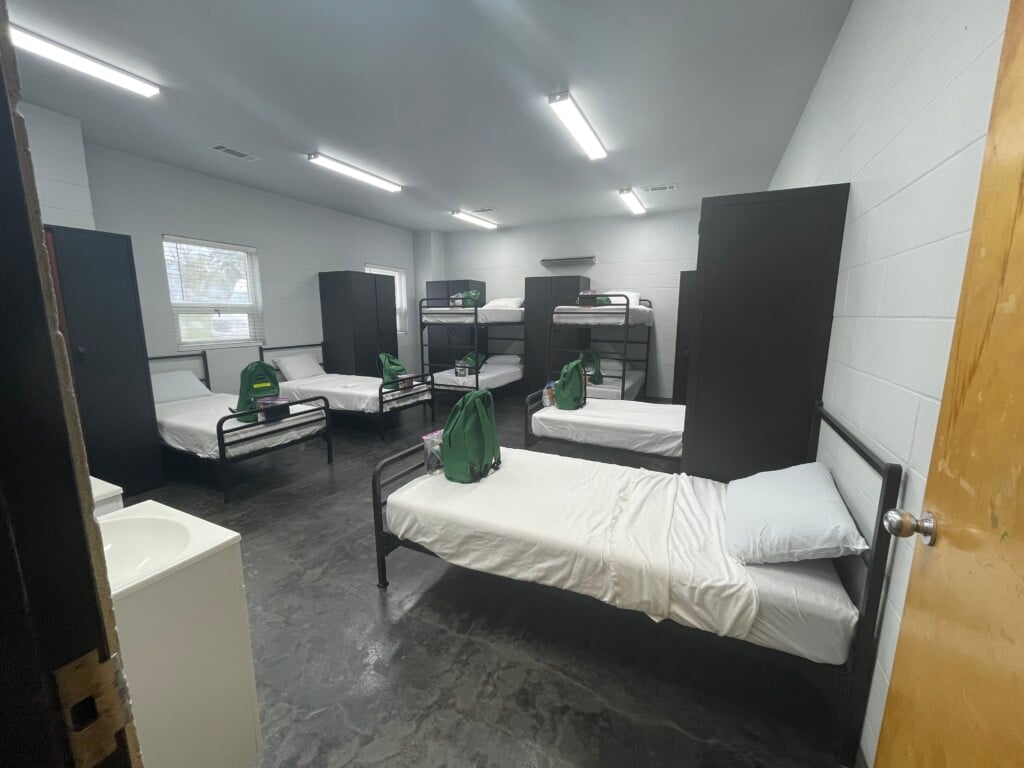Abortion providers say they're experiencing a “post-Roe” world
Sarah got a glimpse earlier this month of what a world without legal abortion might look like.
Out of work and unexpectedly pregnant, Sarah, 20, had her appointment cancelled when Texas halted most abortion services as a way to preserve medical resources to fight the coronavirus pandemic. Desperate, she searched for a doctor who might offer the procedure under the table, or a pharmacist who might illegally fill a prescription for abortion-inducing pills. She had no car or money, so making the 15-hour drive to New Mexico, the site of the closest provider, was out of reach. But for Sarah, keeping the pregnancy wasn’t an option.
“One way I can get it safely done, and another I could put my life on the line,” said Sarah, who asked that her real name not be used. “It’s so scary.”
As the coronavirus’ death toll continues to grow, another public health crisis is emerging. At least eight states have restricted abortion as part of directives banning “non-essential” medical procedures. In Texas, all of the state’s abortion providers were forced for stop offering services for more than four weeks. It marked the first time a state has banned legal abortion since Roe v. Wade legalized the procedure nearly 50 years ago.
For advocates on both sides of the issue, the experience offered a preview of a world without the landmark Supreme Court ruling.
“One thing is just crystal clear to us, and that’s that this is a little peek through a ‘post-Roe’ window,” said Julie Burkhart, the founder of Trust Women, a network of clinics that provide abortions.
As clinics in Texas were forced to turn women away, providers in neighboring states were overwhelmed with patients. At Trust Women, Burkhart’s patient-care coordinator worked nearly 100 hours in one week, attempting to schedule a 400% increase in appointment requests at its Kansas and Oklahoma locations. Some days, her clinics have nearly run out of supplies, Burkhart said.
Planned Parenthood’s clinics in Colorado, New Mexico and Las Vegas reported a seven-fold increase in patients from Texas while the procedure was unavailable in the state.
Many of those patients traveled long distances to get there. Texas patients traveled nearly 2,000% farther to get to the nearest clinic, according to a study from the Guttmacher Institute, a reproductive health research organization. If abortion access were shut down in every state that sought to halt services amid the coronavirus pandemic, the average one-way driving distance to the nearest clinic would have risen 3,625%, to 447 miles from 12, according to data from Guttmacher shared exclusively with CBS News.
One operator, Whole Woman’s Health, began taking patients at five in the morning to try and accommodate everyone. A parking lot full of out-of-state license plates was a scene that Amy Hagstrom Miller, Whole Woman’s Health’s founder, said was reminiscent of stories her mentors had told her of delivering abortion services before Roe v. Wade forced all 50 states to offer the procedure.
“It reminds me of that, this desperation we’re seeing from our patients,” Hagstrom Miller said.
A world without Roe is something Hagstrom Miller and many other providers have been forced to consider. A majority-conservative Supreme Court has made abortion rights more vulnerable than they’ve ever been. A decision on June Medical Services v. Russo is expected in June, and abortion-rights supporters say it could render Roe virtually meaningless. More than a dozen similar cases are making their way through the judicial process that could have the same effect: overturning Roe or eroding it to a point that the right to an abortion in the United States exists in name only.
Without Roe, states would be able to decide for themselves whether to legalize abortion. Abortion-rights group warn the effect would be a patchwork of access and service availability determined by a patient’s zip code.
“This is exactly what you would see in a post-Roe world,” said Nancy Northup, the chief executive officer of the Center for Reproductive Rights, one of the country’s biggest law firms defending abortion access. “You’d see these very same states shut off access. It’s terrifying.”
Texas Attorney General Ken Paxton, who says he’s been “pro-life” since college, said the state’s decision to suspend abortion has nothing to do with his personal beliefs. But Texas — and every other state that’s tried to halt the procedure amid the pandemic — has a long history of regulating abortion. They’re home to some of the country’s most restrictive policies, like a 24-hour waiting period and state-mandated counseling.
For anti-abortion rights activists, overturning Roe is the first step to nationally criminalizing pregnancy termination completely.
“We’re well positioned to go into all 50 states and start trying to change those state laws,” said Carole Tobias, the president of National Right to Life, the country’s biggest anti-abortion rights group. “Ultimately, we can amend the Constitution. That’s a long way down the road, but I think reversing Roe v. Wade and having a state by state battle is going to happen much sooner.”
Because the recent abortion bans have happened within the context of the virus outbreak, the impact has been greater than would be the case in a ‘post-Roe’ world. The economic devastation caused by the outbreak has caused some families to hold off on parenthood.
“We’ve been hearing from women who’ve said, ‘In any other circumstance I would continue this pregnancy and have my baby,'” Burkhart said. “But at this point they’ve made the decision within their family, that an abortion would be the best thing.”
Those making the long treks to neighboring states aren’t just stymied by additional cost, but also increased exposure to the virus.
“It’s many times worse than some of the post-Roe landscapes we’ve imagined because of the public health crisis,” Hagstrom Miller said.
In a surprise legal filing, Texas allowed abortion to resume on April 22 along with certain other medical procedures.
For Sarah, the news was almost too late. In the nearly month-long stretch that abortion wasn’t available, she wasn’t able to raise the nearly $1,200 she expected it would cost to pay for gas for a borrowed car and get the procedure done in New Mexico.
Now, nearly 19 weeks pregnant, Sarah is trying to get to a clinic near her before she hits 20 weeks, when Texas prohibits abortion procedures, coronavirus or not.
“I have rights,” Sarah said. “I can’t be a mother right now, and right now, I have the right not to be.”







Leave a Reply